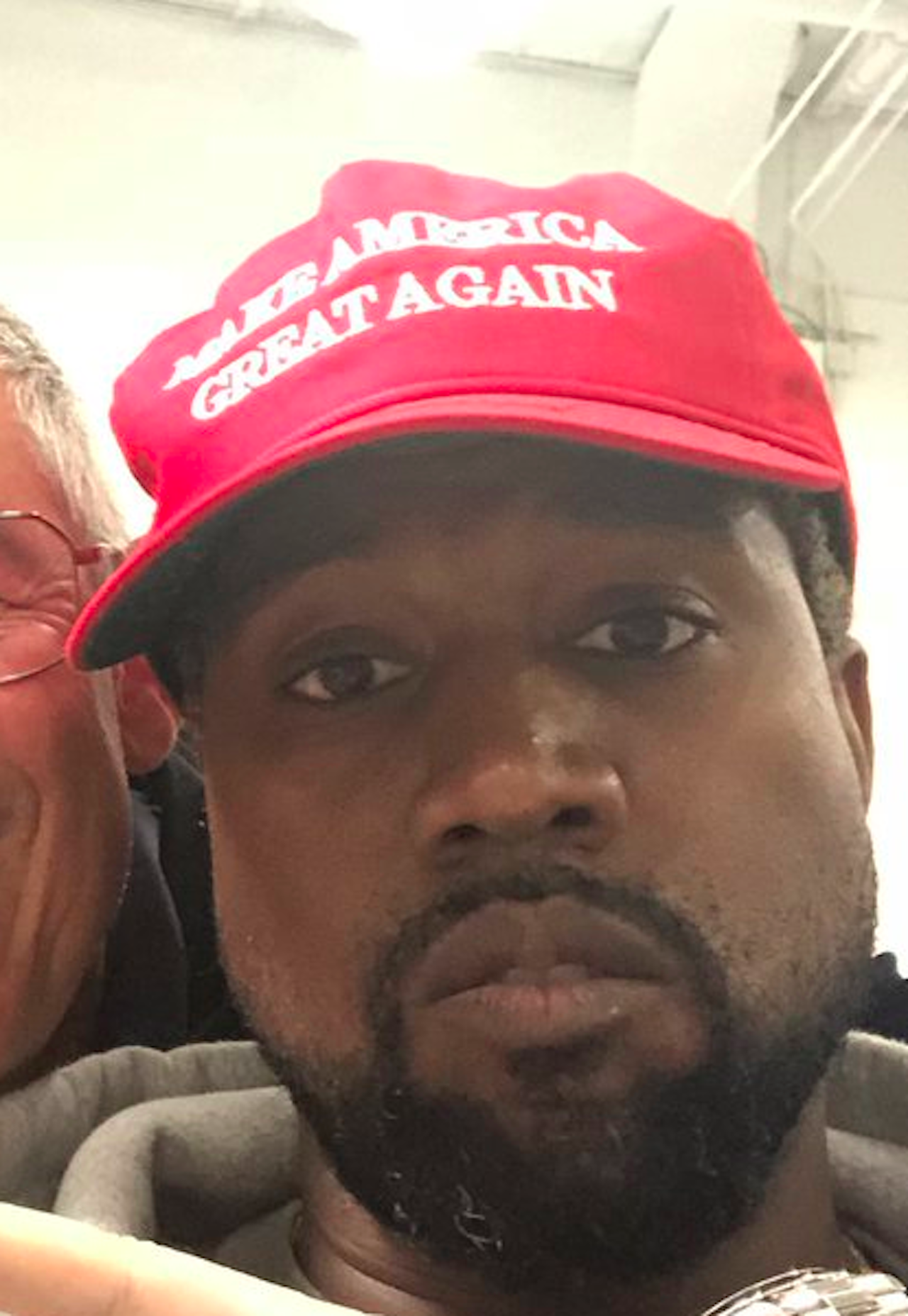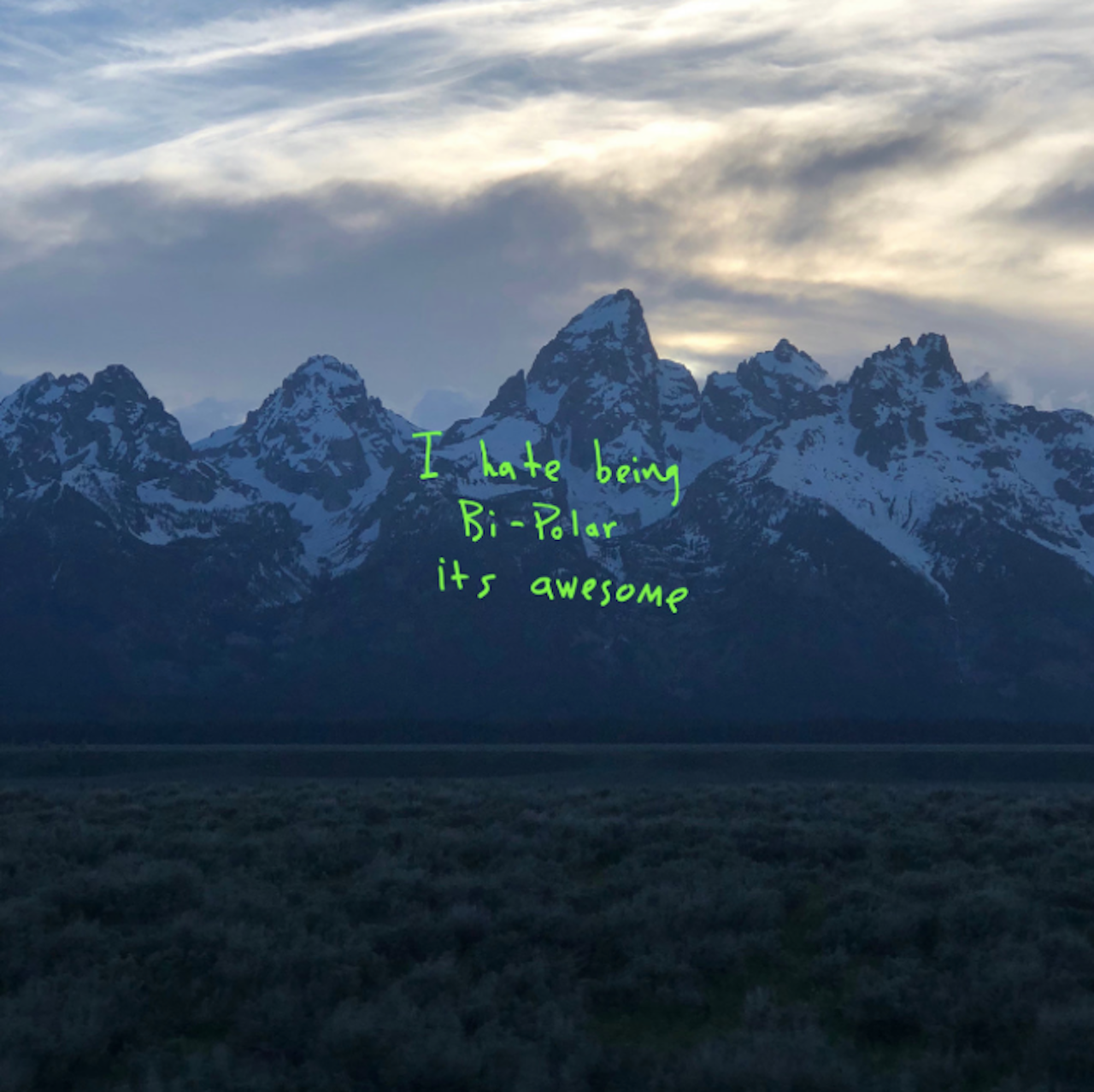In 2016, author Andrew O’Hagan offered a perfect summation of the toxicity of internet culture, writing, “It’s clear how paranoia-inducing it is to be constantly assaulted by people who hate you for thinking your thoughts.” He was telling the story of Craig Wright, an Australian man who’d been the principal member of the Satoshi Nakamoto team behind Bitcoin, but who, at the last moment, chose to sabotage his own unveiling. Instead of opening himself up to millions of dollars and untold tech fame, O’Hagen noted, Wright instead seemed to revel in the irrational smugness of conning the world into thinking he was full of shit.
I’ve been thinking a lot about Wright, and O’Hagan’s report on him, while watching Kanye West flounder through his comeback over these past few weeks, to the righteous indignation of nearly everyone in the music press. Every time he issued a tweet flirting with the alt-right, displaying his signed MAGA hat, or, most gallingly, publicly claiming that slavery was a choice, the music media covered each of his moves with grim completism, as if they were documenting every step in a slow-motion car crash. Kanye had entered into a negative feedback loop with his own coverage, each public misstep and subsequent callout resulting in another, worse one. “He stands completely outside of the conversation he has tried to start, and every time he opens his mouth he looks lonelier,” wrote Pitchfork’s Jayson Greene, in a very smart piece encapsulating Kanye’s decline. For the time being, at least, Kanye had been canceled.
And then, yesterday, the other Yeezy Boost dropped. Reports emerged on the internet that Kanye West had flown hundreds of music industry professionals — including people representing many of those same outlets that had spent weeks burying him with his own words — out to Jackson Hole, Wyoming to listen to ye, an underwhelming 23-minute album that manages to sound simultaneously incredibly expensive and like all the vocals were recorded on a MacBook. (Though I’m mostly joking about the MacBook thing, Kim Kardashian-West’s tweet revealing that Kanye shot the album cover on his iPhone on the way to the Ye listening session suggests that the slapped-together vibe of the album may be less a matter of artistic choice than the product of a time-crunch — after all, a listening party in the middle of Jackson Hole is only a listening party if there’s something to listen to; otherwise, it’s a Republican fundraiser.)
Reporting on the whiplash-inducing affair for Pitchfork, the journalist Alex Frank remarked upon the sheer speed with which the entire music industry was literally summoned to drop everything it was doing and jump on a plane at Kanye’s behest. “Many of us were only invited a day before we were set to leave and given absolutely no information as to what to expect—I did not even know what time I needed to be at the airport until late the night before,” he wrote. “There was no itinerary of what we’d do once we’d arrive, no hotel information, no schedule of events.” Frank’s piece was insightful, duly noting the irony of everyone jumping on a plane just weeks after being horrified by Kanye’s pro-Trump ravings and summing up the ambient feeling of conflictedess: “A vague terror began to wash over me that this could be a nightmare and, given Kanye’s recent mood, that the nightmare itself might be be the goal.”
Watching the dispatches roll in from home, too, offered a similarly nightmarish quality. The media’s seamless about-face, from breathlessly posting about West’s continued public shaming to charting the sensational unfolding of the Wyoming trip, is perhaps best exemplified by Complex, who went from posting a video titled “People Struggle to Tell the Difference Between Kanye and Trump Tweets” earlier this week, to this morning announcing that ye, which had been debuted only hours earlier via a livestream from the Jackson Hole listening party, was “finally” available on streaming services.
As a person who spent years covering hip-hop, watching Kanye’s album build-up has felt like watching a surreal piece of performance art that I narrowly avoided participating in myself. It’s as if Kanye had spent weeks testing how distasteful and alienating he could be while still commanding robust media coverage (not unlike Trump himself), and then how far the media would be willing to go out of its way to make sure they left no stone unturned in methodically capturing every last detail of his new album and its release. In this case, the answer seems to be, “all the way out to Wyoming.”
— KANYE WEST (@kanyewest) April 25, 2018
This isn’t to indict any specific individual or even outlet who decried Kanye only to end up sitting around a campfire listening to ye. If I still covered hip-hop full time, I probably would have had to write a “Kanye sucks now” take, and if I’d been invited to truck it out J-Hole to listen to ye, it would have been professional malpractice to not at least consider it. After all, Kanye gets traffic whether he’s spazzing online or putting out an album, and an article about a free trip to Wyoming to listen to the new Kanye album is so conceptually out of the ordinary that even a shitty one would have a good chance of going viral. [Disclosure: I have written about Kanye a lot in the past, and covered the Yeezus album release party, but it was in Manhattan, and I had to pay for my own cab fare.]
The traffic-based revenue model of online media rewards outlets who can produce a constant churn of polarized, strongly argued opinions — while also obtaining insider access to celebrities and powerful figures, including the most problematic ones. While it’s not uncommon in the music media to accept a free trip in exchange for coverage, most of the time publications don’t accept these junkets to write about people they’ve been publicly dismissing. And when the media pulls such a profound reversal, as they’ve done with West, it lays bare the cynical truth that online journalism is based on giving people what they want to read (or at least want to share), regardless of the ethical considerations that fueled countless thinkpieces just a few weeks prior. Pageview counts don’t differentiate between well-intentioned criticism and dispatches from Kanye’s beautiful dark twisted Wyoming fantasy — and when clicks fuel journalism, it's all too easy for a publication to contradict itself, letting seemingly hard stances slide into the oblivion of the feed.
In 1998, the French curator and art critic Nicholas Bourriaud wrote an essay arguing that the true nature of a work of art is not the work itself, but instead “the place that produces a specific sociability.” The piece — which laid the foundation for relational aesthetics, a critical framework in art and arts journalism that was trendy throughout the 00s — suggested that “The role of artworks is no longer to form imaginary and utopian realities, but to actually be ways of living and models of action within the existing real.” In other words, sometimes it helps to think of art as not the thing itself, but as a function of what happens when an artist takes the thing and shows it to people.
I’d rather not ascribe any particularly lofty aims to Kanye here, but if there’s any meaning that can be derived from the whole Wyoming debacle, it’s that it demonstrates the media’s vacuous quest for content at all costs. In a way, everyone’s lucky that there was an actual album full of actual music at the end of all of this. It could have just been 23 minutes of Kanye making pooping noises, and it wouldn’t have changed much. After all, the media would have still found a way to turn that shit into gold.

